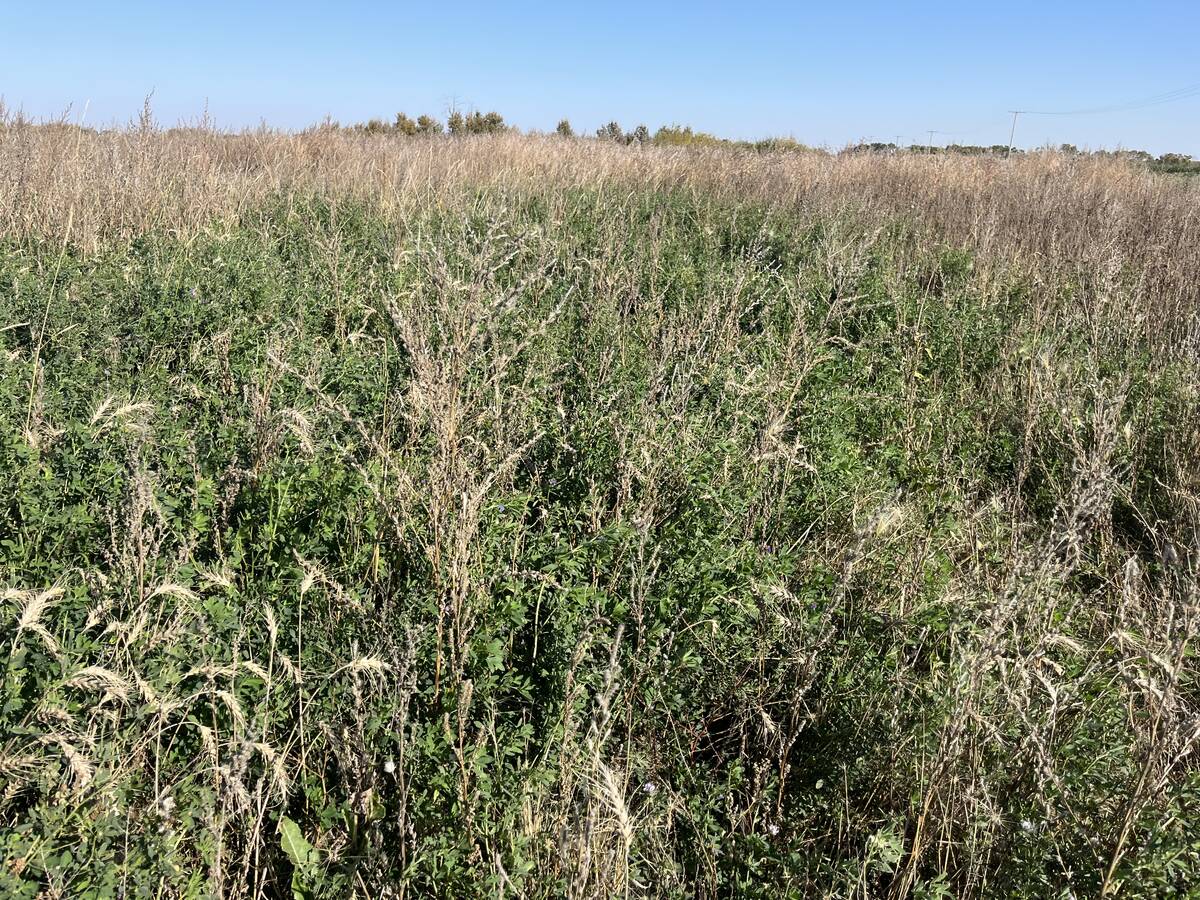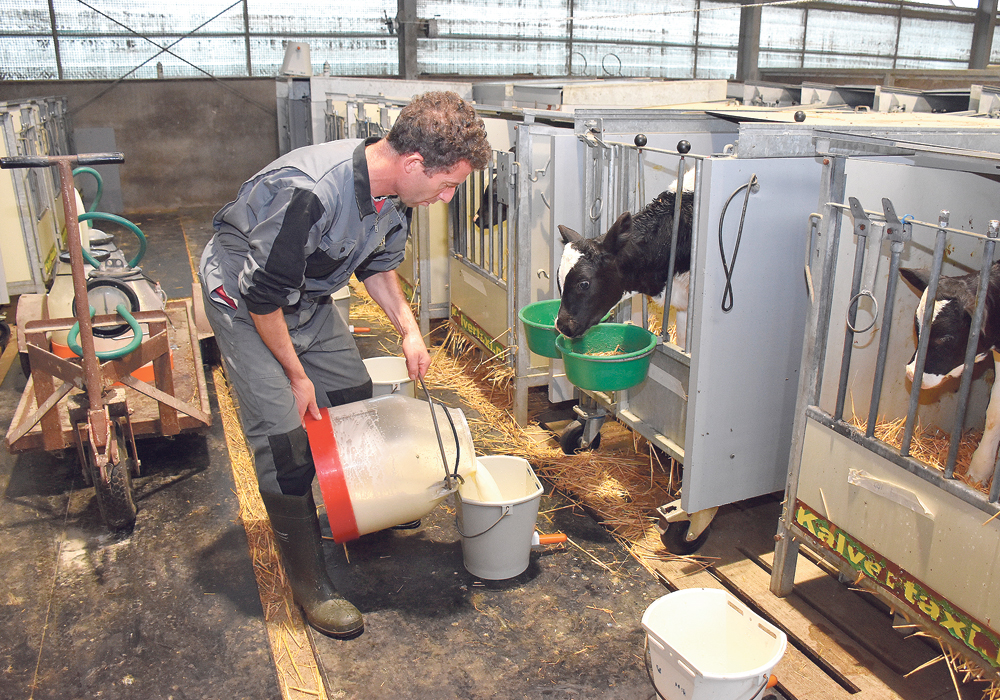Dutch company AHV International is developing several natural products that are providing welcome results in helping livestock farmers reduce antibiotic use.
“What we now know is that bacteria must gather together in groups in order to co-ordinate an action and have an impact on the host animal,” AHV International co-founder and veterinarian Gertjan Streefland said.
“To make this happen they must communicate with each other through a process called ‘quorum sensing’. In essence, individual bacteria emit signal molecules so as to make this grouping process come about.
Read Also

Dormant seeding forages frees up farmer time and gets ahead of weeds
Dormant seeding isn’t common practice and can appear daunting, but there are some techniques to give Manitoba farmers an edge
“In response, AHV New Pharma solutions have been developed to disrupt this communication process, thereby abolishing the impact that pathogenic bacteria could have when entering a host animal.”
He said the AHV New Pharma solutions also break down biofilms that bacteria generate around their own cells to prevent attacks from antibiotics.
“And, because of this combined activity, invading pathogenic bacteria are more predisposed to attack by the host’s immune system. The end result is a process which directly impacts on the ability of pathogenic bacteria to cause disease without a reliance on antibiotics,” he said.
Udder infections cost European dairy farmers billions of euros per year in lost milk sales and increased veterinary expenses.
In the past, farmers treated all four quarters of a dairy cow detected with mastitis, which increased the use of antibiotics and costed more.
AHV International has developed a number of products including boluses for mastitis and a powder mix for giving calves a good start in life.
“The company’s track record in the Netherlands and a host of other countries around the world confirms the efficacy of the AHV New Pharma approach and its product range,” Streefland said.
“Farmers are fully aware of the need to reduce their reliance on antibiotics. The challenge of anti-microbial resistance is now a key priority for health professionals, veterinarians and the public at large, given the recent emergence of pathogens that are now resistant to almost every antibiotic that is currently available.”
Siem de Boer runs 300 cows in partnership with his brother, Jan, on their farm near Edam around 50 kilometres from Amsterdam.
Just two years ago, de Boer was having big trouble with cryptosporidium in his herd as well as mastitis.
“We were having a lot of cases of mastitis in the herd as well as crypto, which left us with unhealthy calves and loss of milk sales,” said Siem. “Our vet bills were spiralling and I wanted to reduce our use of antibiotics.
“After a chance meeting with Gertjan, I decided to use the AHV Cow Extra boluses to tackle mastitis, which worked a treat and had no withdrawal period for the milk.
“A farmer has to have patience when using these products and he has to understand how they work. It’s too easy just to stick a tube of antibiotics into the udder but the substance only penetrates the lower section of the quarter.
“The bolus helps all parts of the quarter and really does get rid of the mastitis. I give around 30 percent of my cows a bolus these days, which really helps.
“It is real easy to see the difference in the calves as they are shining and thriving very well,” he added. “Currently, I have manged to reduce my use of antibiotics to around 20 percent of the herd.”
Wim Lubbersen farms with his twin sons Kevin and Twan at Holten in the Netherlands milking 190 cows.
They have successfully managed to reduce the antibiotic use in the milking cows to zero in just three months after using the cow boluses to lower the somatic cell count.
“We use the boluses on cows with high cell counts,” said Lubbersen. “And we use the Calf Start mixed in the milk for the young calves.
“Our cows are milked by three Lely robots, which can detect any abnormalities in the cow’s health including any high somatic cell counts.
“Since starting to use the products we noticed very quickly a reduction in the number of cases of mastitis. Our herd average yield is around 11,000 kilograms in 305 days with the cell count currently running at 100,000,” he said.
AHV International also plans to release soon a product that will dry cows off in just one day.
The company also says its cow boluses can treat other problems, such as mycoplasma bovis in dairy cows, which has caused many cows in New Zealand to be culled.















